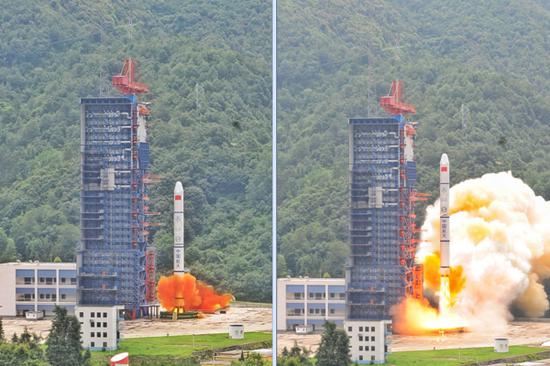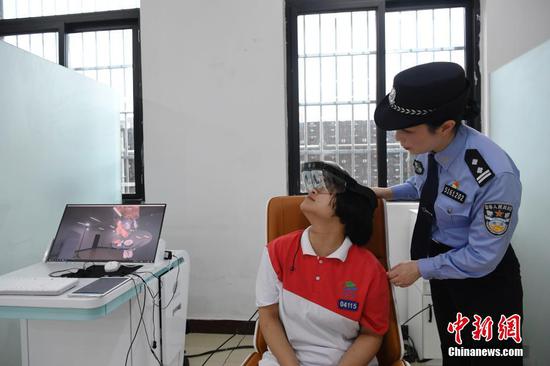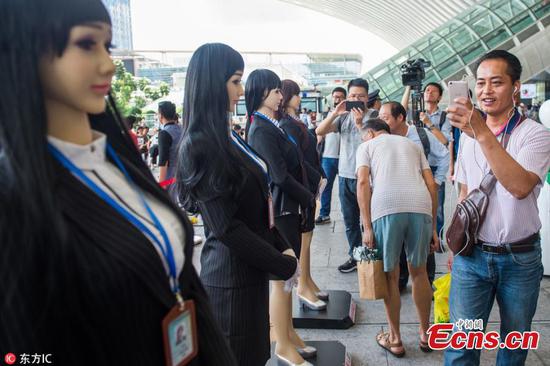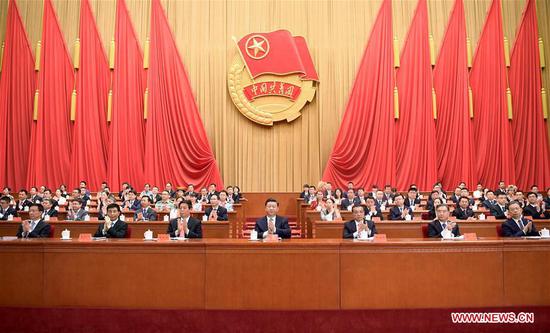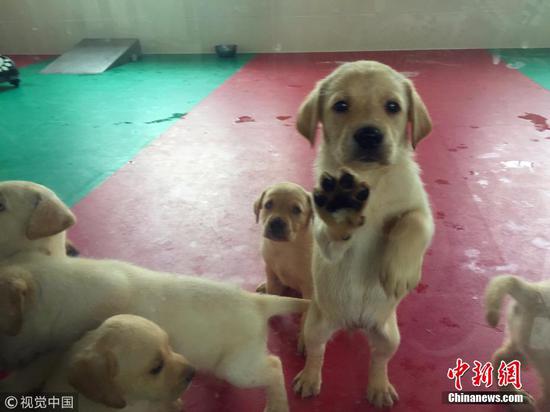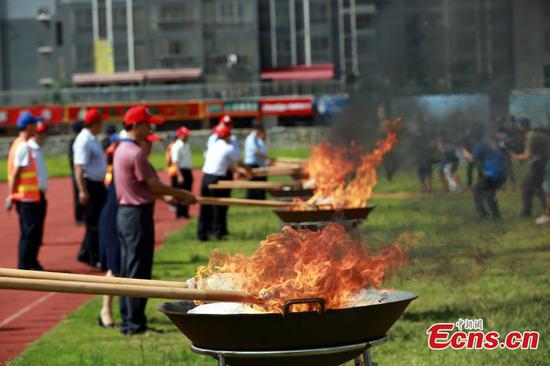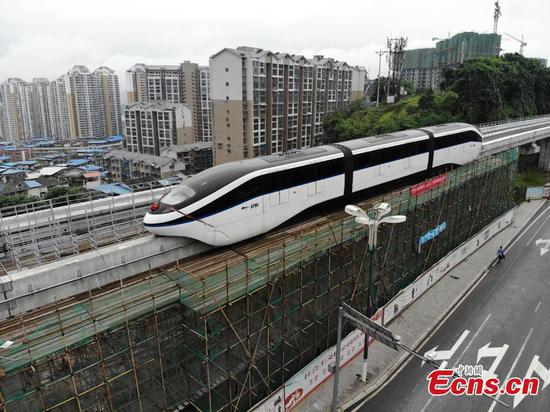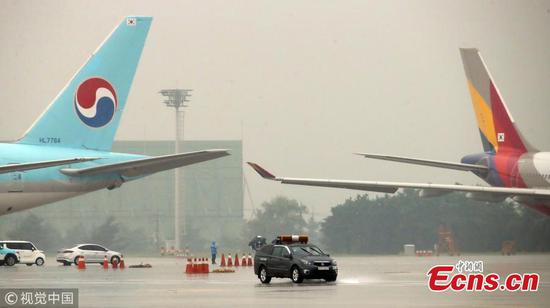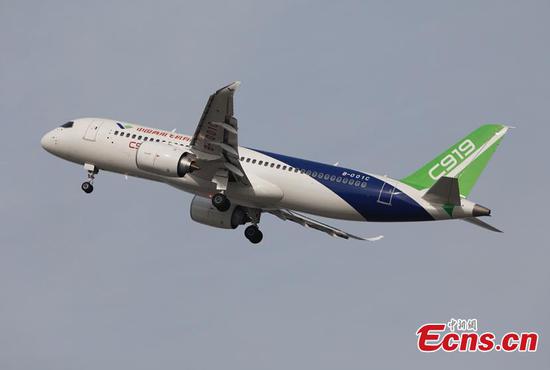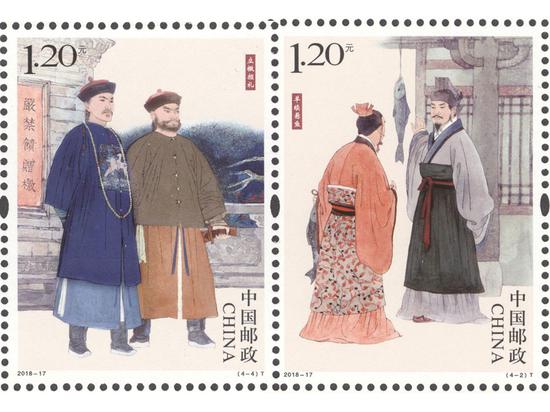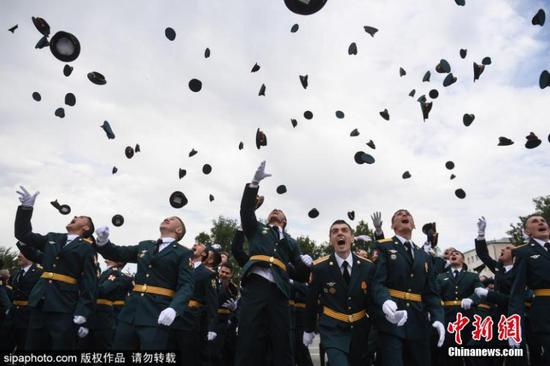Ladies and Gentlemen,
Friends,
A comprehensive study of world development trajectories shows that economic globalization is an irreversible trend of our times. In line with this conclusion, I emphasized in my report to the 19th CPC National Congress that China will continue to adhere to its fundamental national policy of opening-up and pursue development with its door wide open. I wish to make it clear to all that China's door of opening-up will not be closed and will only open even wider!
What has happened proves that opening-up was key to China's economic growth over the past 40 years and in the same vein, high-quality development of China's economy in the future can only be achieved with greater openness. Opening-up is a strategic decision made by China based on its need for development as well as a concrete action taken by China to move economic globalization forward in a way that benefits people across the world.
China will adopt the following major measures to pursue further opening:
First, we will significantly broaden market access. A number of landmark measures are to be launched this year. On services, financial services in particular, important announcement was made at the end of last year on measures to raise foreign equity caps in the banking, securities and insurance industries. We will ensure that these measures are materialized and at the same time make more moves toward further opening, including accelerating the opening-up of the insurance industry, easing restrictions on the establishment of foreign financial institutions in China and expanding their business scope, and opening up more areas of cooperation between Chinese and foreign financial markets. On manufacturing, we have basically opened up this sector with a small number of exceptions on automobiles, ships and aircraft. Now these industries are also in a position to open up. Going forward, we will ease as soon as possible foreign equity restrictions in these industries, automobiles in particular.
Second, we will create a more attractive investment environment. Investment environment is like air, and only fresh air attracts more investment from the outside. China relied mainly on providing favorable policies for foreign investors in the past, but now we will have to rely more on improving the investment environment. We will enhance alignment with international economic and trading rules, increase transparency, strengthen property rights protection, uphold the rule of law, encourage competition and oppose monopoly. We established a host of new agencies such as the State Administration for Market Regulation as part of a major readjustment of government institutions this past March, the purpose of which is to remove the systematic and institutional obstacles that prevent the market from playing a decisive role in resources allocation and enable the government to better play its role. In the first six months of this year, we will finish the revision of the negative list on foreign investment and implement across the board the management system based on pre-establishment national treatment and negative list.
Third, we will strengthen protection of intellectual property rights (IPR). This is the centerpiece of the system for improving property rights protection, and it would provide the biggest boost to the competitiveness of the Chinese economy. Stronger IPR protection is the requirement of foreign enterprises, and even more so of Chinese enterprises. This year, we are re-instituting the State Intellectual Property Office to strengthen the ranks of its officers, step up law enforcement, significantly raise the cost for offenders and fully unlock the deterrent effect of relevant laws. We encourage normal technological exchanges and cooperation between Chinese and foreign enterprises, and protect the lawful IPR owned by foreign enterprises in China. At the same time, we hope foreign governments will also improve protection of Chinese IPR.
Fourth, we will take the initiative to expand imports. Domestic demand is the fundamental driving force for China's economic development, and it is an essential requirement for us to meet the people's ever-growing need for a better life. China does not seek trade surplus; we have a genuine desire to increase imports and achieve greater balance of international payments under the current account. This year, we will significantly lower the import tariffs for automobiles and reduce import tariffs for some other products. We will import more products that are competitive and needed by our people. We will seek faster progress toward joining the WTO Government Procurement Agreement. We hope developed countries will stop imposing restrictions on normal and reasonable trade of high-tech products and relax export controls on such trade with China. This November, we will hold the first China International Import Expo in Shanghai. It is not just another expo in an ordinary sense, but a major policy initiative and commitment taken of our own accord to open up the Chinese market. Friends from around the world are welcome to participate in the Expo.
I wish to emphasize that with regard to all those major initiatives of opening-up that I have just announced, we have every intention to translate them into reality, sooner rather than later. We want the outcomes of our opening-up efforts to deliver benefits as soon as possible to all enterprises and people in China and around the world. I am confident that with these efforts, China's financial sector will be much more competitive, our capital market will continue to enjoy healthy development, the building of a system of modern industries will be accelerated, our market environment will be greatly improved, and intellectual property rights will be effectively protected. In short, China will enter a new phase of opening-up.
Five years ago, I put forward the Belt and Road Initiative (BRI). Since then, more than 80 countries and international organizations have signed cooperation agreements with China. The BRI may be China's idea, but its opportunities and outcomes are going to benefit the world. China has no geopolitical calculations, seeks no exclusionary blocs and imposes no business deals on others. It must be pointed out that as the BRI is a new initiative, it is perfectly natural for there to be different views. As long as the parties embrace the principle of extensive consultation, joint contribution and shared benefits, we can surely enhance cooperation and resolve differences. This way, we can make the BRI the broadest platform for international cooperation in keeping with the trend of economic globalization and to the greater benefit of all our peoples.
Ladies and Gentlemen,
Friends,
As a Chinese saying goes, "A mountain is formed by accumulation of earth and an ocean is formed by accumulation of water." Happiness and a bright future will not appear automatically; success only favors those with courage and perseverance. Let us dedicate ourselves to openness and win-win outcomes, be brave to change and break new ground, and keep striving for a community with a shared future for mankind and a better tomorrow for Asia and the world!
In closing, I wish this BFA Annual Conference a complete success.
Thank you.









